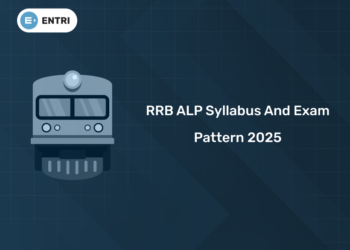Table of Contents
There are 12 Schedules in the Constitution of India. One of the first mentions of Schedules was made in the Government of India Act, 1935 where it included 10 Schedules. Later, when Indian Constitution was adopted in 1949, it consisted of 8 Schedules. Today, with the amendments in Indian Constitution, there are a total of 12 Schedules. In this blog we will discuss about Schedules of Indian Constitution.
Get free Mock Test for GK! Download Entri App!
List of Schedules of Indian Constitution
| Schedules | Features of Schedules |
| First Schedule of Indian Constitution | It contains the name of States and Union Territories. Territorial Jurisdiction of states is also included |
| Second Schedule of Indian Constitution | The provisions in relation with allowances, privileges, emoluments of:
|
| Third Schedule | It contains the forms of oath and affirmation for:
|
| Fourth Schedule | It contains the provisions in relation to the allocation of seats for States and Union Territories in the Rajya Sabha |
| Fifth Schedule | It contains provisions in relation to the administration and control of scheduled areas and scheduled tribes |
| Sixth Schedule | It contains provisions in relation to the administration of tribal areas in the states of Assam, Meghalaya, Tripura and Mizoram |
| Seventh Schedule | This schedule deals with the three legislative lists:
|
| Eighth Schedule | It deals with the 22 official languages recognized by the Indian Constitution:
|
| Ninth Schedule | It deals with the state acts and regulations of that deal with land reforms andabolition of the zamindari system. It also deals with the acts and regulations of the Parliament dealing with other matters.
Note: 1st Amendment Act 1951 added the Ninth Schedule to protect the laws included in it from judicial scrutiny on the ground of violation of fundamental rights. However, in 2007, the Supreme Court ruled that the laws included in this schedule after April 24, 1973, are now open to judicial review |
| Tenth Schedule | It contains provisions relating to disqualification of the members of Parliament and State Legislatures on the ground ofdefection.
Note: This schedule was added by the 52nd Amendment Act of 1985, also known as Anti-defection Law |
| Eleventh Schedule | It contains the provisions that specify the powers, authority and responsibilities of Panchayats. It has 29 matters.Note:
This schedule was added by the 73rd Amendment Act of 1992 |
| Twelfth Schedule | It deals with the provisions that specify the powers, authority and responsibilities of Municipalities. It has 18 matters.Note:
This schedule was added by the 74th Amendment Act of 1992 |
Schedules of Indian Constitution & Articles
1: Who was the first woman President of India?
Aspirants should know about the Constitutional Articles related with the Schedules of Indian Constitution. It will give them clarity of concepts and help them understand the chronology of important articles.
| Schedules of Indian Constitution | Articles of Indian Constitution |
| First Schedule | Article 1 and Article 4 |
| Second Schedule | Articles:
|
| Third Schedule | Articles:
|
| Fourth Schedule | Article 4 and Article 80 |
| Fifth Schedule | Article 244 |
| Sixth Schedule | Article 244 and Article 275 |
| Seventh Schedule | Article 246 |
| Eighth Schedule | Article 344 and Article 351 |
| Ninth Schedule | Article 31-B |
| Tenth Schedule | Article 102 and Article 191 |
| Eleventh Schedule | Article 243-G |
| Twelfth Schedule | Article 243-W |
Why Practice from Entri?
- Always provides you up to date materials that are created by Entri’s Top Experts.
- Mock tests available in bilingual and other regional languages
- Download Entri to access the unlimited mock test.
Navigating through Entri
- Open your Entri App go to the Bank Tab and check the mock tests.
- You can check courses and Mock test for other examinations as well
- Subscribe to our Mock Test and clear your examination with flying colors.
Ace your preparation. That is where Entri comes in. It helps you to prepare effectively for your Exam.











